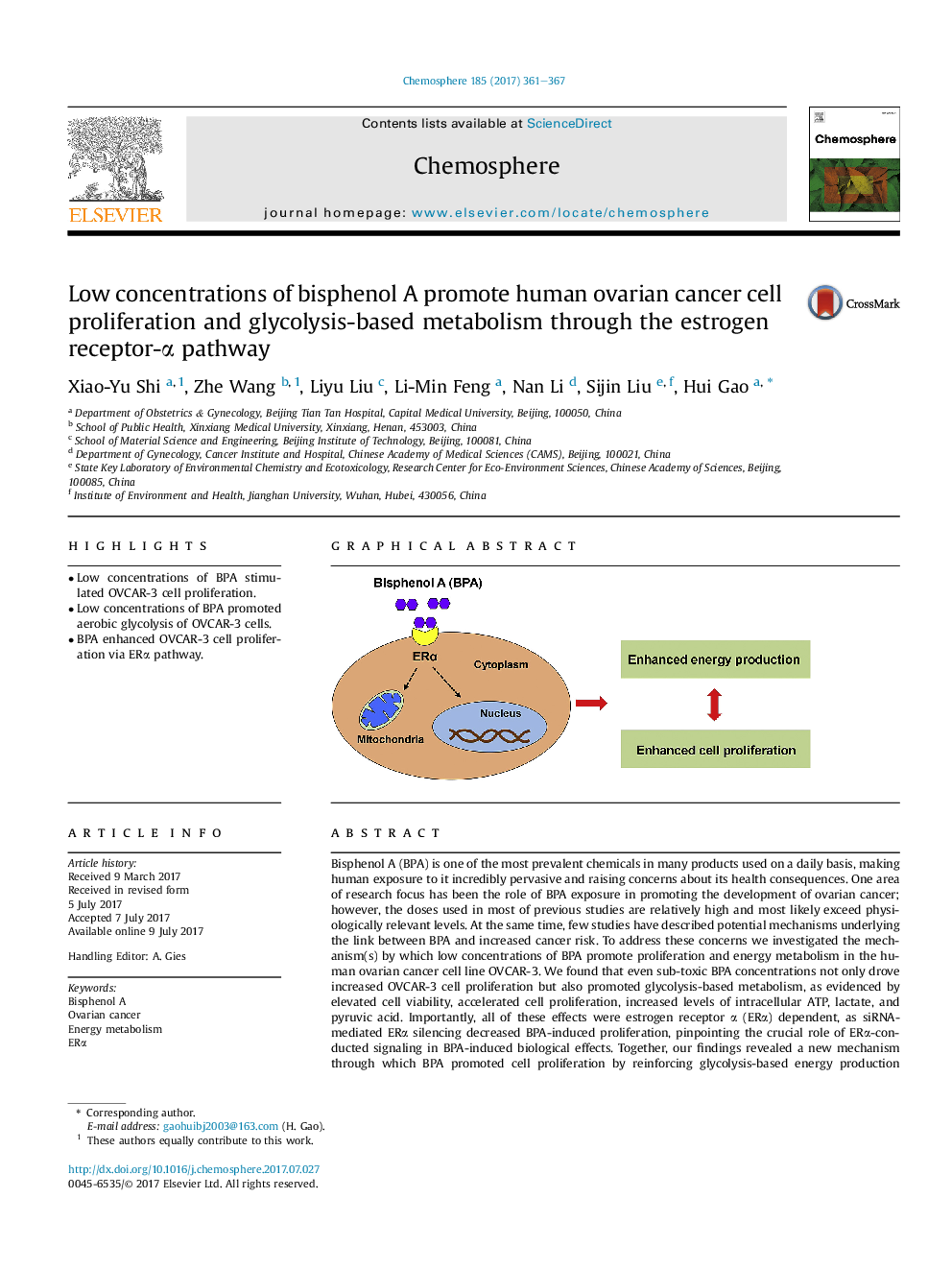| کد مقاله | کد نشریه | سال انتشار | مقاله انگلیسی | نسخه تمام متن |
|---|---|---|---|---|
| 5746743 | 1618786 | 2017 | 7 صفحه PDF | دانلود رایگان |

- Low concentrations of BPA stimulated OVCAR-3Â cell proliferation.
- Low concentrations of BPA promoted aerobic glycolysis of OVCAR-3Â cells.
- BPA enhanced OVCAR-3 cell proliferation via ERα pathway.
Bisphenol A (BPA) is one of the most prevalent chemicals in many products used on a daily basis, making human exposure to it incredibly pervasive and raising concerns about its health consequences. One area of research focus has been the role of BPA exposure in promoting the development of ovarian cancer; however, the doses used in most of previous studies are relatively high and most likely exceed physiologically relevant levels. At the same time, few studies have described potential mechanisms underlying the link between BPA and increased cancer risk. To address these concerns we investigated the mechanism(s) by which low concentrations of BPA promote proliferation and energy metabolism in the human ovarian cancer cell line OVCAR-3. We found that even sub-toxic BPA concentrations not only drove increased OVCAR-3 cell proliferation but also promoted glycolysis-based metabolism, as evidenced by elevated cell viability, accelerated cell proliferation, increased levels of intracellular ATP, lactate, and pyruvic acid. Importantly, all of these effects were estrogen receptor α (ERα) dependent, as siRNA-mediated ERα silencing decreased BPA-induced proliferation, pinpointing the crucial role of ERα-conducted signaling in BPA-induced biological effects. Together, our findings revealed a new mechanism through which BPA promoted cell proliferation by reinforcing glycolysis-based energy production dependent on ER signaling. This study would thus open a new path to understand BPA-induced biological effects on tumor cells.
Bisphenol A promote energy production and cell proliferation under low concentrations.88
Journal: Chemosphere - Volume 185, October 2017, Pages 361-367